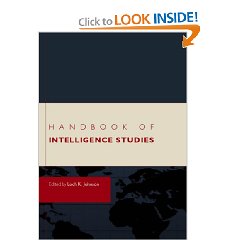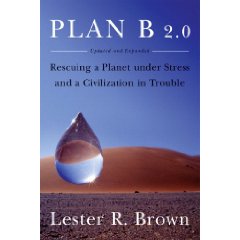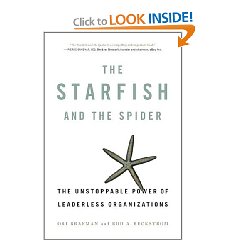 Utterly Phenomenal: *The* Book for Living Life to the Fullest,
Utterly Phenomenal: *The* Book for Living Life to the Fullest,
Peggy Holman
EDIT of 9 Feb 09 to add links (capability not available at the time) and to commit to attending NEXUS II in Bowling Green, OH 30 Mar – 1 Apr 08.
I could spend the rest of my life trying to learn, use, and share each of the methods in this book, and never finish. When it was first published in 1999, it was before its time. Now, in 2006, this is a book made for our times, when Burning Man is now Green Man, Al Gore is a rock star, and even the greediest Wall Street CEO is starting to realize the party is over and we have to get real, real fast.
I have been an admirer of Free/Open Source Software (F/OSS) and a champion of Open Source Intelligence (OSINT), and have gradually learned about other “opens” that are coming to the fore: Open Spectrum, Open Access, Open Culture, Open Innovation, and of course George Soros' Open Society. From this book I now add Open Circle, to complement the Open Space concept I learned recently in Seattle's Town Hall while listening to Paul Hawken talk about the World Index for Social and Environmental Responsibility.
I have to confess that this book is over-whelming, and I can barely scratch the surface. This is more of a book where you should read one author, one segment, each night, and fall asleep thinking about how to implement that one small section, how to embrace someone else and engage them with that one method.
Having three teen-agers, all three of whom have completely rejected the prison/child care format and the rote learning objectives of the current school system (even as good as it is in Fairfax County) I will go so far as to say that this book, combined with serious games/games for change, is a complete one-to-one substitute for our current educational process.
Everything in here is what we *should* have learned in school, what we *should* be practicing in fulfilling our civic duty (what we *actually* do is described in “The Cheating Culture,” “Confessional of an Economic Hit-Man,” and “Rogue Nation”).
I am moving quickly and heavily into the intersection of Collective Intelligence (see my reviews of “The Tao of Democracy,” “Smart Mobs,” “Wisdom of the Crowds,” or my longer list; and Natural Capitalism with its “true cost” meme. See my reviews of Paul Hawken et al, “Ecology of Commerce” and “Natural Capitalism,” of the varied books by Herman Daly, and soon, my reviews of “The Great Turning,” the “Omnivore's Dilemma,” and others. For a broader sense of the possibilities, check out “Earth Intelligence Network” online.
I still have the 1970's operating manual for spaceship earth someplace in my lower library. This book is the manual for spaceship earth for our children and those of us recommiting ourselves to the joy of learning and changing in our later years. It's not over until *we* decide its over.
See these other books that have also inspired me and given me hope:
The Tao of Democracy: Using Co-Intelligence to Create a World That Works for All
Society's Breakthrough!: Releasing Essential Wisdom and Virtue in All the People
How to Change the World: Social Entrepreneurs and the Power of New Ideas, Updated Edition
A Power Governments Cannot Suppress
Escaping the Matrix: How We the People can change the world
One from Many: VISA and the Rise of Chaordic Organization
All Rise: Somebodies, Nobodies, and the Politics of Dignity (BK Currents)
The Average American: The Extraordinary Search for the Nation's Most Ordinary Citizen
Running On Empty: How The Democratic and Republican Parties Are Bankrupting Our Future and What Americans Can Do About It
The Soul of Capitalism: Opening Paths to a Moral Economy
My lists are also a fast path to collections covering the ten threats, twelve policies, eight challengers, and various other aspects of saving humanity and the Earth from outselves.
 Click Here to Vote on Review at Amazon,
Click Here to Vote on Review at Amazon,
on Cover Above to Buy or Read Other Reviews,
I Respond to Comments Here or There













